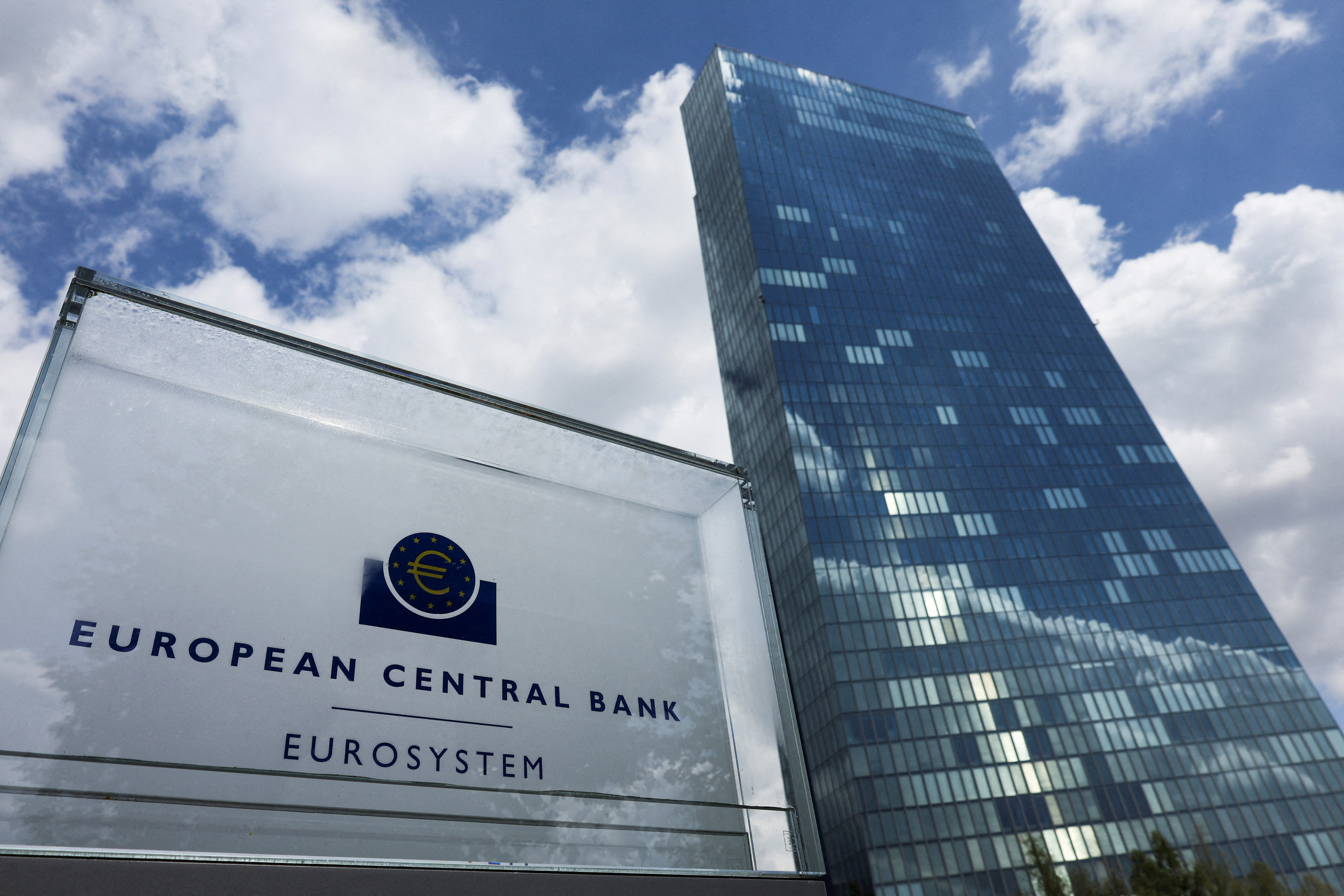The European Central Bank looks set on Thursday to deliver another large interest rate rise to curb inflation. What it does after that is less certain.
ECB President Christine Lagarde, speaking in Davos recently, stressed the need for monetary policy to “stay the course.”
Investors are keen to get a sense of just how long and how far the central bank will keep hiking rates.
“ECB policymakers think they have to kill inflation and will only stop hiking when they a see a big improvement in the inflation outlook,” said Carsten Brzeski, global head of macro at ING.
Here are five key questions on the radar for markets.
1/ What will the ECB do on Thursday?
The ECB raising its deposit rate by 50 basis points (bps) to 2.5 per cent is seen as a done deal, so markets will focus on what Lagarde has to say.
Signs of cooling inflation have prompted markets to push down expectations for where rates will peak to around 3.3 per cent. Policymakers have already challenged market moves, and expectations could move back up towards 3.5 per cent if a brighter economic outlook prompts further hawkish messaging.
“The ECB needs to be hawkish,” said Eoin Walsh, partner at TwentyFour Asset Management. “I don’t know whether Lagarde will say that market pricing of the terminal rate is too low, but I expect her to reiterate that the ECB will continue to raise rates.”
2/ Will the ECB send any signals about March and beyond?
Markets hope so since the outlook beyond Thursday is contentious. Some, including Dutch and Slovak officials, support a big rise in March. Comments from Lagarde suggest she would also back such a move.
Policy doves are pushing back as headline inflation comes down. Italy’s Fabio Panetta believes the ECB should not commit to any specific move beyond February.
“There were questions recently about why markets don’t understand what the ECB will do next,” said ING’s Brzeski. “Part of the reason is that markets are too optimistic but there’s also a question about the ECB’s own communication chaos and who we should listen to.”
3/ Are more details on quantitative tightening (QT) likely?
The ECB plans to reduce bonds bought under its Asset Purchase Programme (APP) by 15 billion euros on average per month from March to June. UBS expects the ECB to reiterate that the pace of QT after June will be decided later, when some economists expect an acceleration.
“The ECB will provide further guidance on the balance sheet rundown, including on how the different APP programs will be handled and importantly also on the planned unwind of cross-country holdings,” said Patrick Saner, head of macro strategy at Swiss Re.
4/ How quickly is core inflation likely to come down?
That’s not clear and predicting the path of inflation has been tricky.
With updated ECB projections not out until March, Lagarde is likely to be pressed on how the ECB views core inflation, which strips out volatile food and energy prices. The ECB targets headline inflation at 2 per cent, but officials are focused on a core measure.
January euro zone inflation numbers on Wednesday could prove timely. Headline inflation eased to 9.2 per cent in December, but a core measure also excluding alcohol and tobacco, rose to 5.2 per cent from a 5 per cent.
5/ Is the ECB more upbeat on the growth outlook?
The ECB’s Mario Centeno reckons recession may be avoided. Business activity made a surprise return to modest growth in January, while JPMorgan has raised its first-quarter economic growth forecast to 1 per cent from a contraction of 0.5 per cent — echoing a similar move from Goldman Sachs.
“Yes, the ECB will for sure acknowledge the better domestic and external growth backdrop,” said Swiss Re’s Saner.
“This will actually also allow them to make the case that rates need to go higher and stay there for a while, as a stronger demand environment inhibits core disinflation which is what matters most.”







Click here to change your cookie preferences